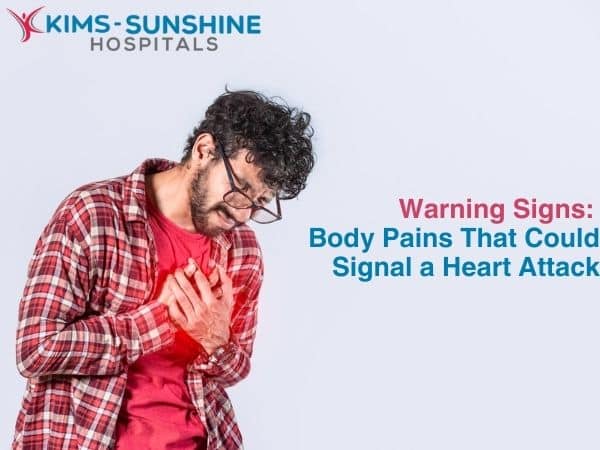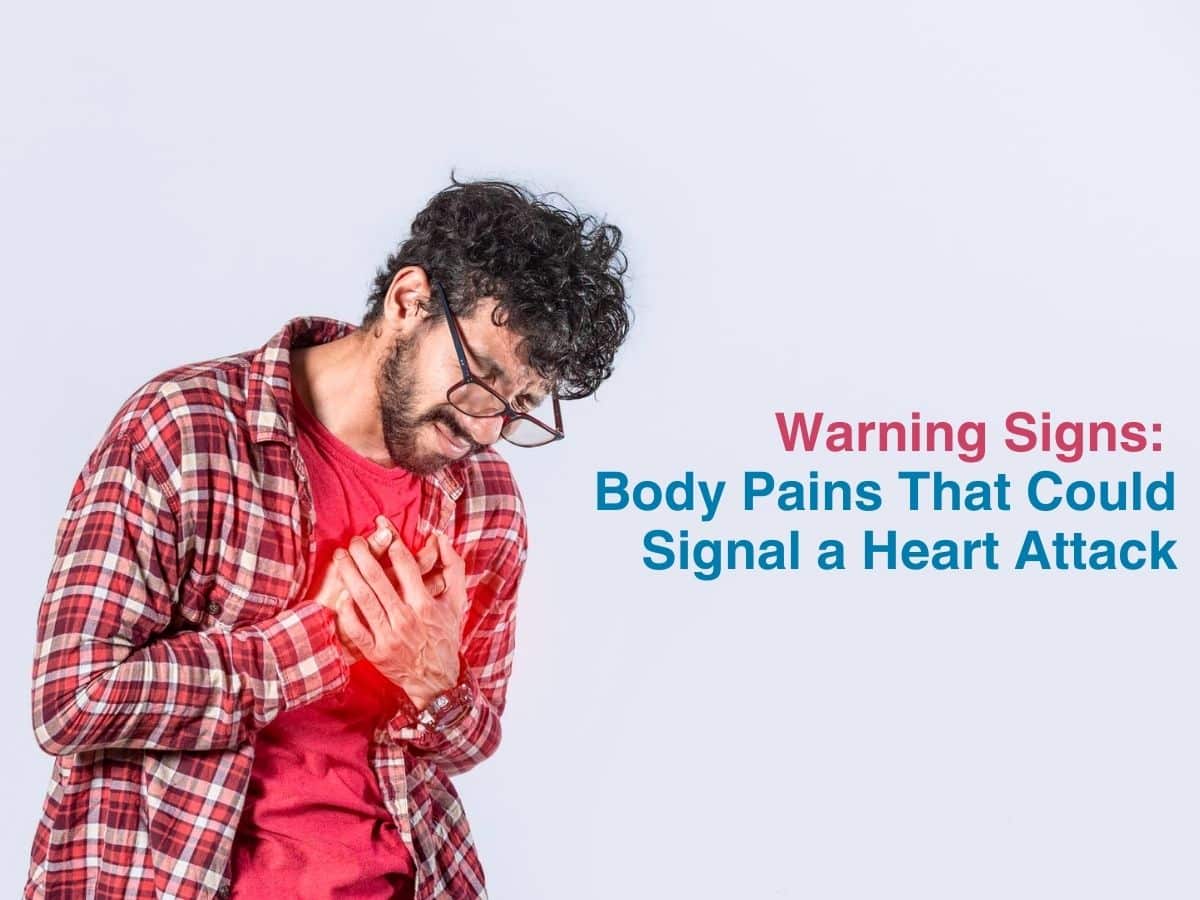
Warning Signs: Body Pains That Could Signal a Heart Attack

Pain is a universal indicator for something wrong happening to your body. This is because the location of the pain can tell you where the issue is and you can then look for effective ways to address it. Chest pain has been a universal indicator for a heart attack, but for many people, it may be present, along with a few other symptoms. So, how do you know if it is a false alarm or if you genuinely need medical help? Let us learn how to recognize heart attack symptoms- with both common and seemingly strange ones, below.
Heart Attack Symptoms Beyond Chest Pain
Intense chest pains cannot be ignored anyway, but did you know that your body will try to warn you about an impending cardiac event days or even weeks in advance? But, it will do so with subtle symptoms that you may easily overlook. So, don’t do that, listen to your body closely-
- You may experience a lot of sweating and may not be able to breathe freely
- You could have pain in other areas- like the shoulder, jaw, neck and back. The pain may radiate down from the shoulder to the arm.
- You may also present with gastric issues which feel like severe acidity
- You could have mild or severe tightness in your chest region
- You may feel the need to puke or downright nauseous
- You may feel exceedingly tired.
- You can feel a major change in your heart rate- like very quick or irregular pulse
- You may feel dizzy too
- You may have fluid retention in your lower limb- like the ankles, feet and legs. It may not always be due to a cardiac issue. It may also be due to poorly functioning kidneys.
The chest pain is because there is less (or nil) blood flow to certain parts of the heart. Cardiac muscles which are highly specialised require lots of oxygen to work well. When they don’t get enough, they may begin to die, which is what manifests as physical pain or tightness in the first place. This symptom is common for everyone, but women may face slightly different symptoms, when compared to men.
Let us now look at some uncommon heart attack symptoms in women-
With women, the signs may be much more subtle and manifest as shortness of breath, pain in the neck, jaw, shoulders or back. Nausea and vomiting are common. Acidity and chest pain are not that commonly felt in such cases. Plus, research has shown that women are twice as likely to die of a cardiac event than men. Women may also feel more anxious than usual and this can be dismissed as a panic attack.
However severe or seemingly mild they may be, it is best to get medical help. You should remain calm and call for emergency medical services. With respect to the heart, the sooner you get the right kind of help, the better your long term prognosis will be. That is why it is called the ‘Golden Hour’. It is the same for stroke and other related conditions too, where timely treatment is of the essence.
In general however, we request you to not take chances with your health and get checked when you have the following signs-
- When you notice a few or many of the abovementioned symptoms
- It is worrisome when you feel like there is a heart issue when exercising or during movement and it seems to get better with rest
- If you have other comorbid conditions like hypertension, diabetes, hypercholesterolemia or smoke a lot, then getting routine health check ups is a must. In India, it is the individuals who are in their late 40s and early 50s, who seem to suffer the most. This is alarming, as this is an indication for a higher incidence of heart disease at younger ages.
Conclusion
We have covered almost all information on how to identify heart attack warning signs quickly. But it is always good to do a brief recap. It also makes total sense to know contact information for the nearest emergency care wing. When you feel any of these symptoms coming on, don’t freak out. Instead, try to stay calm and call someone for assistance- like a friend or family member. They can then call and get you help if you feel too weak to do so yourself. Don’t overthink it all and wait for the results. Your doctor should be able to come up with a plan to swiftly diagnose and treat you. Lastly, don’t be dumb and try to drive to the hospital yourself. If your symptoms get worse, then you may endanger yourself and others on the road.
Frequently Asked Questions
Is chest pain always present during a heart attack?
Can pain in the arm or shoulder be a sign of a heart attack?
How do I know if jaw or neck pain is related to a heart attack?
Can back pain indicate a potential heart attack?
How long does heart attack pain typically last?

Dr. Aparanji Gopidi
MBBS, MD (General Medicine), DM (Cardiology)
Associate Consultant Cardiologist






